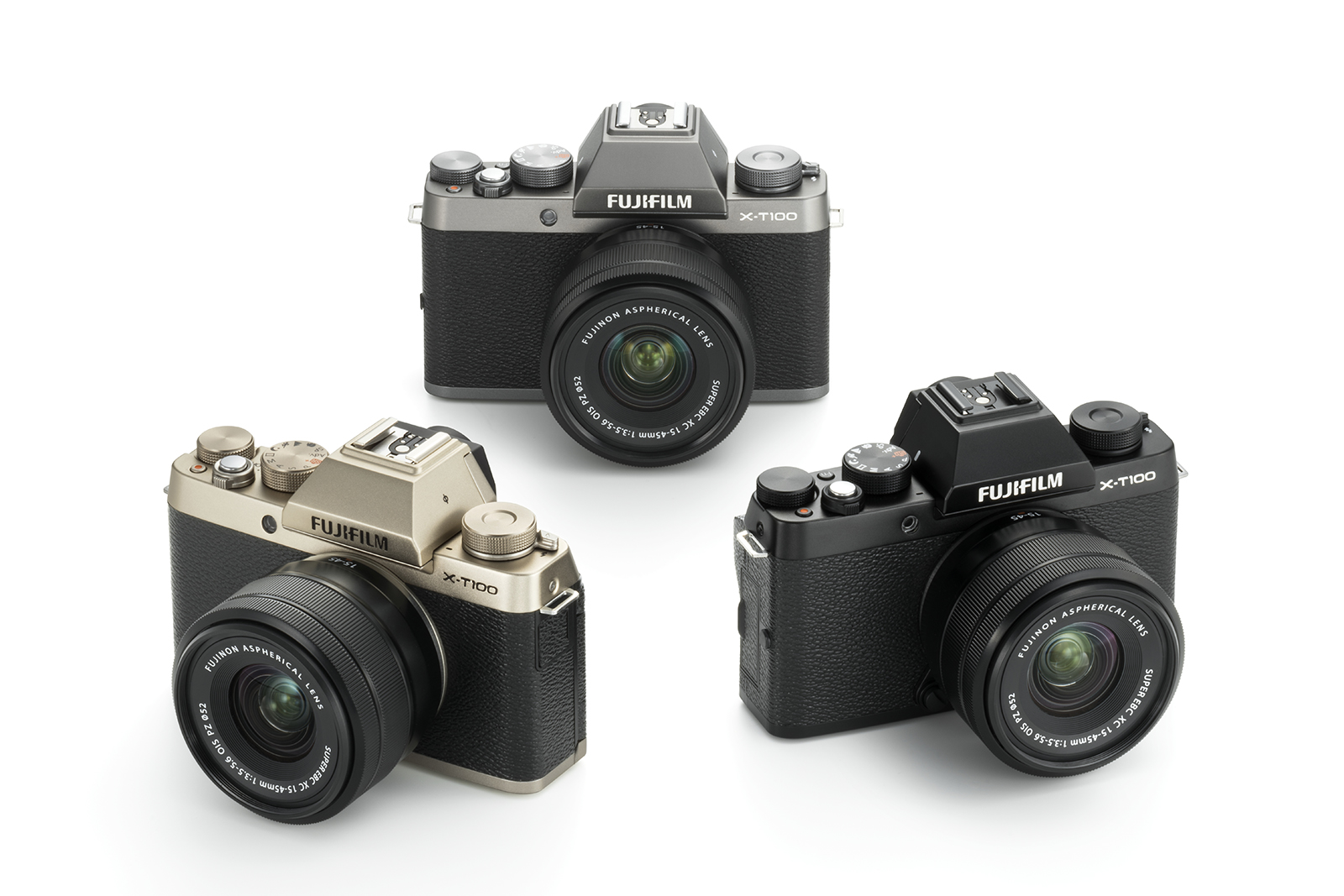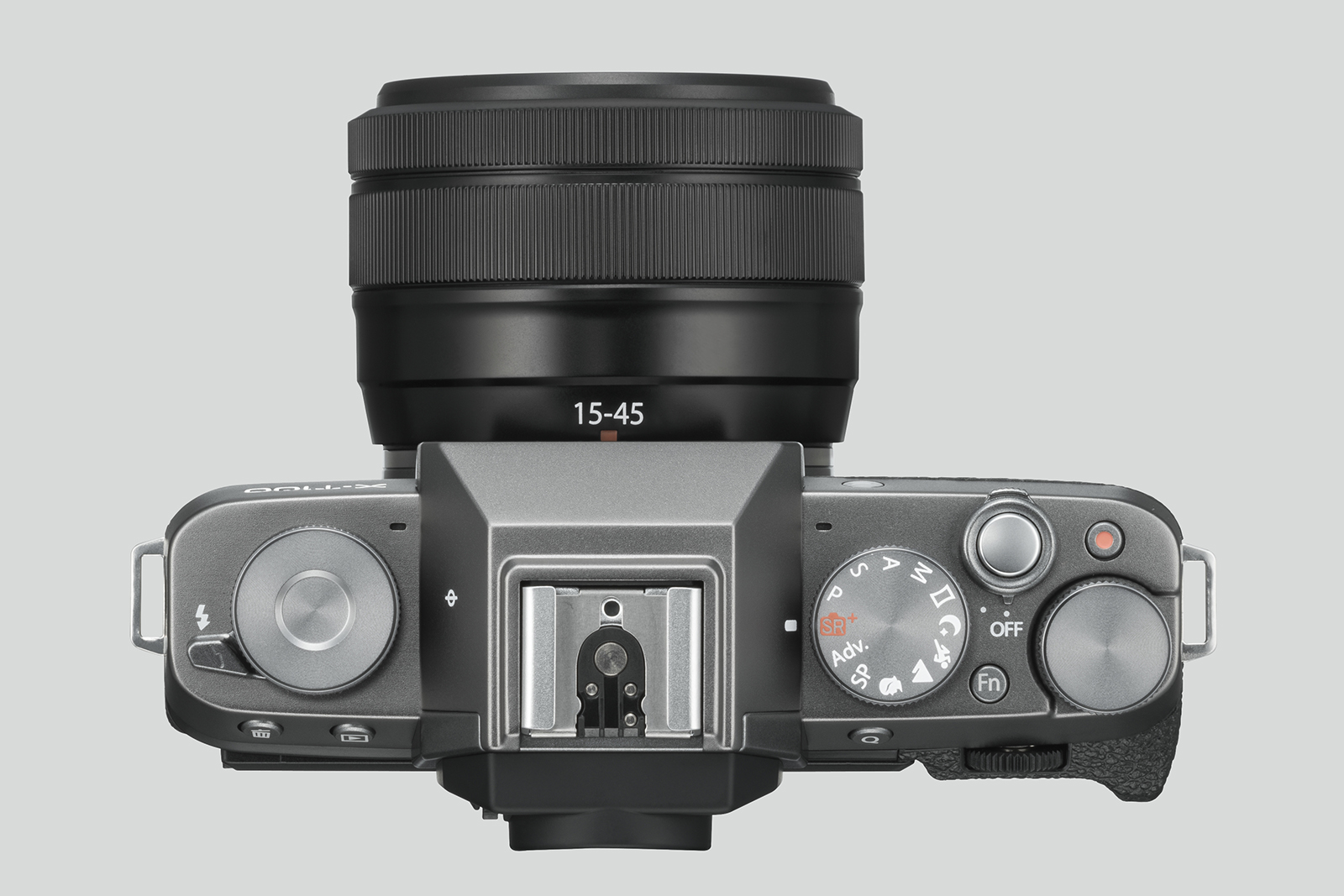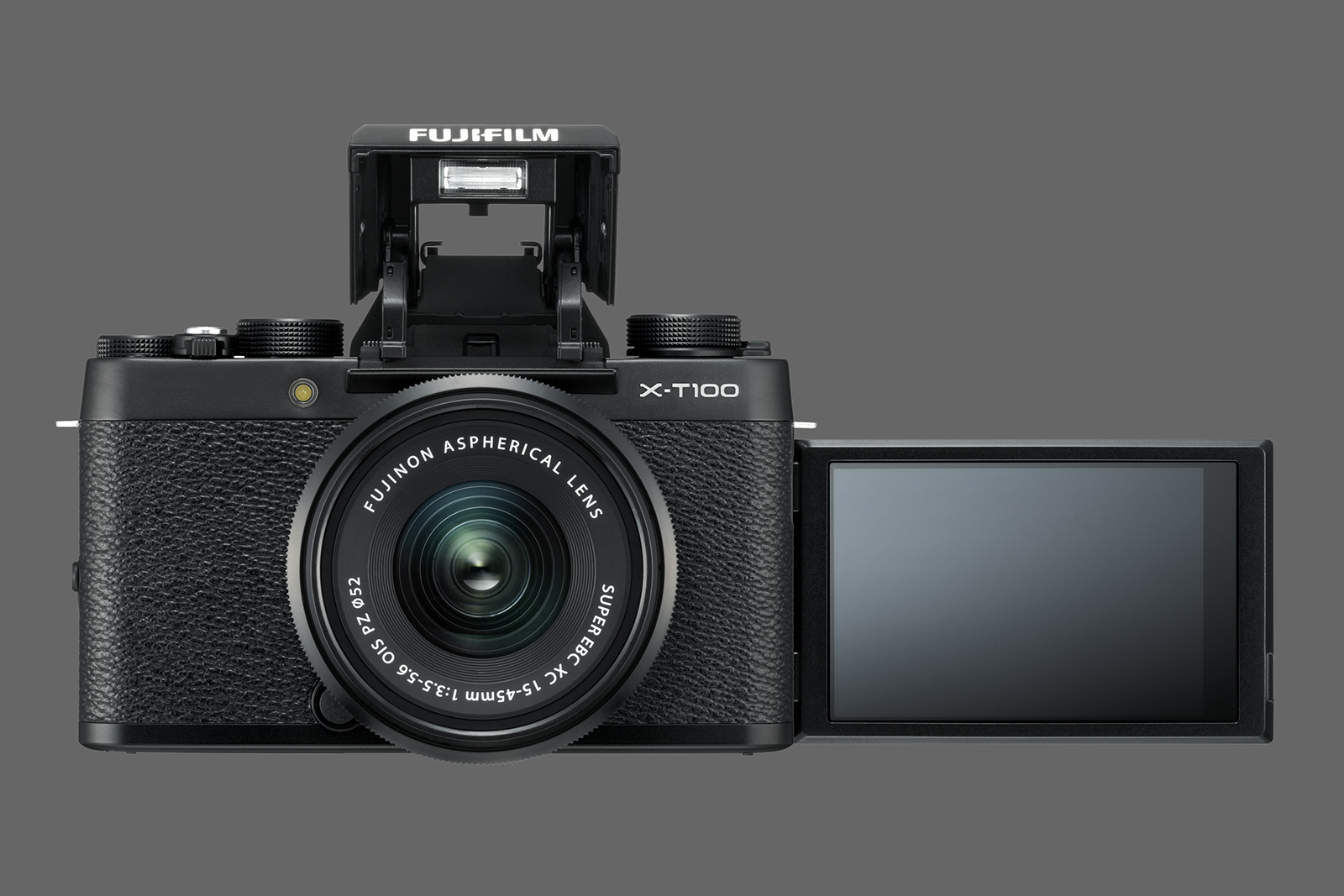Fujifilm is tempting beginners with a new compact mirrorless camera positioned just below the enthusiast-level X-T20 — an impressive mirrorless camera that we loved in our review. The new Fujifilm X-T100, announced Thursday, May 24, is a $600 camera ($700 with kit lens) that embodies the style and functionality of Fujifilm’s higher-end mirrorless cameras, including an electronic viewfinder. The X-T100 (not to be confused with the fixed-lens X100T) is not a direct replacement of another model, instead extending the X-T lineup to three current cameras and giving consumers an option just above the viewfinder-lacking X-A5.
However, the X-T100 follows in the tradition of the budget X-A line by foregoing the X-Trans sensor design that Fujifilm’s higher-end cameras are known for, opting instead for the 24-megapixel Bayer-array sensor of the X-A5. Beyond the more traditional pixel layout, this sensor still includes an optical low pass filter, which should lead to slightly reduced sharpness compared to the pricier models in the series. That said, the megapixel count is still high enough that the X-T100’s target user should end up with plenty of resolution. The camera also includes 11 film simulation modes, less than the 15 found in the X-T20.
When it comes to speed, the X-T100 can’t quite keep up with its big siblings, but its 6-frames-per-second burst mode isn’t unusual for the price point and compares well to budget-friendly DSLRs. The X-T100 also offers a high-performance mode, which shortens the start-up time to match that of the more powerful X-T2.
The video specs are also truncated compared to the higher-end X-T cameras, with 4K resolution available only at 15 fps, meaning it won’t really be usable for normal video shooting. On the plus side, both 4K and Full HD 1080p can be recorded for up to 30 minutes continuously. Additionally, a 4K burst mode allows for higher speed continuous shooting than what’s possible at full resolution, and a new 4K Multi Focus mode stacks multiple images together for a sharper shot with in-camera focus stacking. Focus stacking is an advanced technique often done manually in postproduction to increase depth of field in macro shots, but having it built-in to the camera will make it accessible to less experienced photographers.
While the speed steps down, the autofocus is identical. The X-T100 uses a hybrid mix of contrast and phase detection with up to 91 areas.
One feature unique to the X-T100 not found on the other X-T models is Bluetooth, which should simplify wireless connectivity and control. A smile and “buddy” mode have also been added to the self-timer options to help trip the shutter at the perfect moment. Battery life is also improved, with a decent 430-shot rating compared to 340 and 350 for the X-T2 and X-T20, respectively.
On the outside, the X-T100 embodies much of the look and feel of the rest of the line, including the retro-inspired design capped with an aluminum-constructed top. Like the X-T20, it is not weather sealed and also lacks the more ergonomic grip of that camera. The viewfinder and LCD screen also share similar specs, with 2,360K dots for the EVF and 1,040K dots for the articulating touchscreen. In keeping with the beginner-friendly price point, a mode dial sits where the shutter speed dial rests on the X-T2 and X-T20. The body weighs about 15.8 ounces with the battery and memory card loaded.
The X-T100 is a more affordable entry point into Fujifilm’s mirrorless system that maintains the classic look and feel of higher-end models while offering performance more similar to the lower-end X-A5. The camera will make its way to store shelves and online shopping carts on June 18. Along with standard black, Fujifilm will also offer the camera in silver and champagne gold. The camera will be available body-only ($600) or paired with the Fujinon XC 15-45mm f/3.5-5.6 lens ($700).







